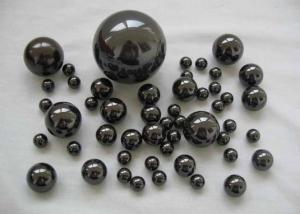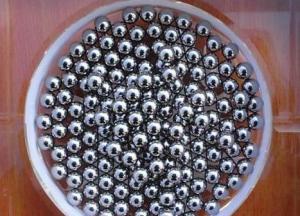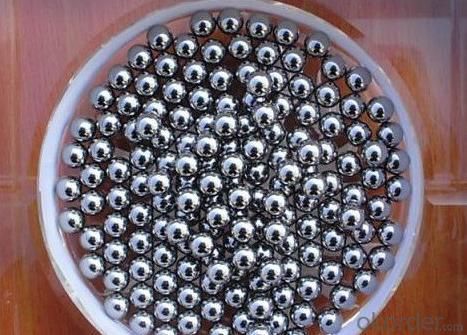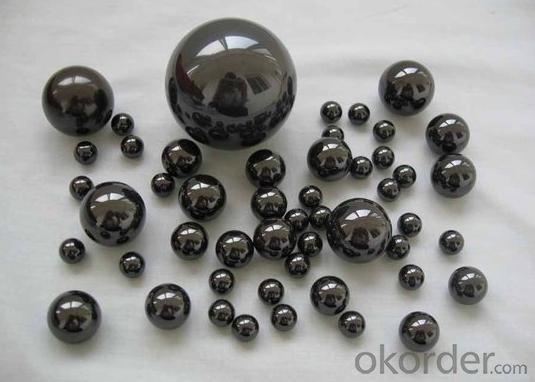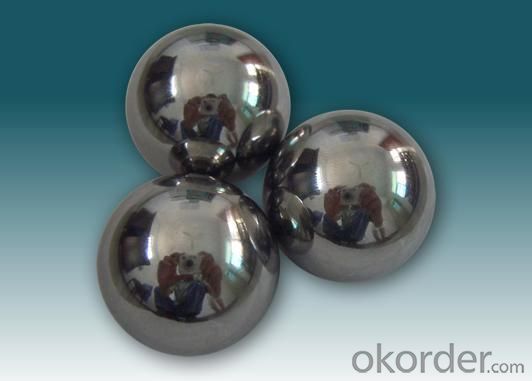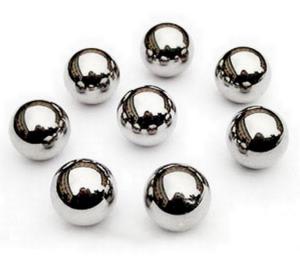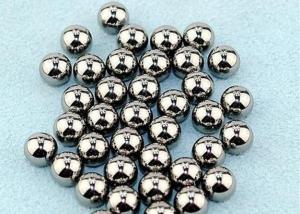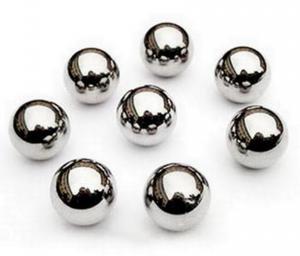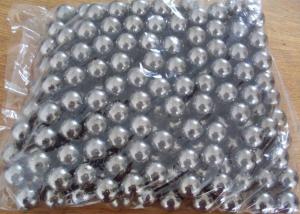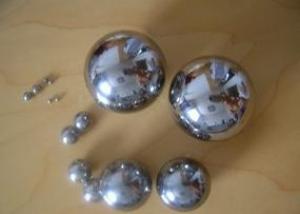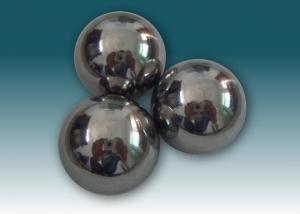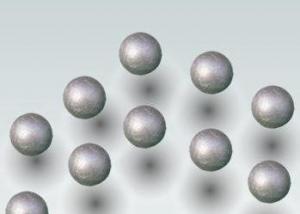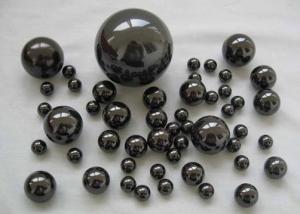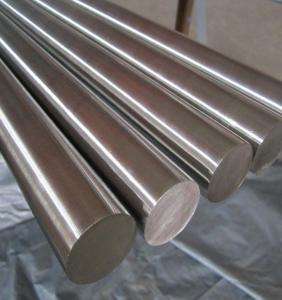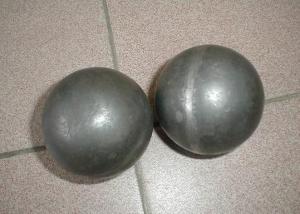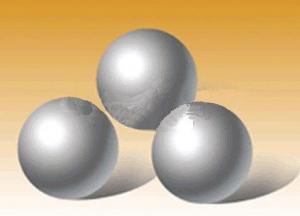316L Stainless Steel Ball
- Loading Port:
- China Main Port
- Payment Terms:
- TT or LC
- Min Order Qty:
- 5 Tons pc
- Supply Capability:
- 1000 Tons Per Month pc/month
OKorder Service Pledge
OKorder Financial Service
You Might Also Like
Stainless Steel Ball
MAIN PRODUCTS:
1. Material: AISI304, 316L, 420C, 430, 440C
2. Steel ball, with material AISI 1008-1086.
3. Chrome steel ball,with material: AISI52100
4. Flying saucer steel ball
5. Precision casting, including auto parts, machine parts, hardware handles, etc.
CHARACTER OF PRODUCTS:
1.The Grade of our products is from G10 to G1000
2.The dimension is from 0.5 mm to 25.4 mm.
3.The products from us are widely used in several industries, such as hardware, sliders, ball bearing lead screw, wheels, toys, bicycles, bearings, trust bearings pulleys, chemical industries, etc.
DETAIL SPECIFICATION:
|
Item |
SS304,316L,420C,440C Stainless steel ball |
|
Category |
Stainless Steel Ball |
|
Material |
AISI 420 430 440 SS304 316L |
|
Size |
0.5mm--25.4mm, 1/4",3/16",5/32",1/8",7/32",5/16",7/8",1" |
|
Grade |
G100-G3000 |
|
Hardness ( HRC) |
HRC58-65 |
|
Application |
Bicycle, bearing, pulley, slide, handcraft, shelf, luggage, hardware, grinding media |
|
Standard |
GB/T-308-2002, GB/T1148-93 |
|
Matched Standard |
DIN, JIS, ASME |
|
Certification |
ISO |
|
Packing |
Oily packing in pouch packing,plastic/tin box packing 1, 25kg/carton with steel pallet packing 2,25kg/carton without steel pallet packing 3,10kg/box then in wooden case packing 4,250kg/ steel drum packing or according to customers' requirement |
|
Place of original |
Shandong province, China |
|
Delivery |
Within 30 days or confirmed while placing order |
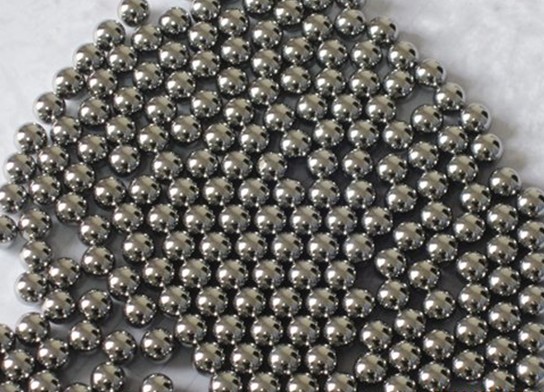
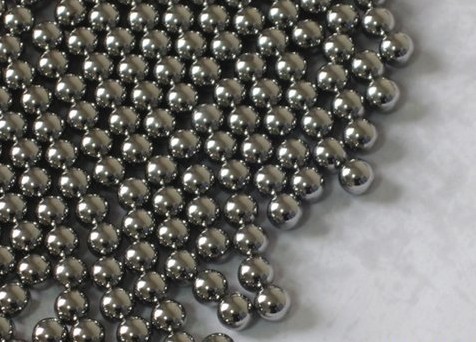
- Q: Are stainless steel balls suitable for use in aerospace or aviation applications?
- Yes, stainless steel balls are suitable for use in aerospace or aviation applications. Stainless steel is known for its high strength, corrosion resistance, and durability, making it an ideal material for various components, including balls used in aerospace or aviation equipment. These balls are capable of withstanding extreme conditions, such as high temperatures, pressure, and vibrations, making them reliable and suitable for critical applications in the aerospace or aviation industry.
- Q: How do stainless steel balls handle high-speed rotations?
- Stainless steel balls are exceptional when it comes to handling high-speed rotations due to their unique properties and composition. The high strength and durability of stainless steel make it ideal for applications that involve high-speed rotations. Firstly, stainless steel balls have excellent hardness and wear resistance, which allows them to withstand the immense forces and friction generated during high-speed rotations. This hardness also helps in maintaining the shape and integrity of the balls, even under extreme rotational speeds. Secondly, stainless steel balls are known for their corrosion resistance. This property ensures that the balls remain unaffected by environmental factors such as moisture, humidity, or chemical exposure, which could otherwise compromise their performance during high-speed rotations. Furthermore, stainless steel balls have low friction characteristics, which minimize energy loss and heat generation during high-speed rotations. This low friction property enables smooth and efficient rotations, reducing the risk of wear and tear. Additionally, stainless steel balls are highly precise in terms of their dimensions and shape. This precision is crucial for high-speed rotations as any imbalance or inconsistency in the ball's shape can lead to vibrations and instability, negatively impacting the performance and safety of the rotating system. In summary, stainless steel balls are perfectly suited for high-speed rotations due to their exceptional hardness, wear resistance, corrosion resistance, low friction, and precision. These properties ensure that stainless steel balls can handle the immense forces, maintain their integrity, and provide smooth and efficient rotations even under demanding conditions.
- Q: Can stainless steel balls be used in vacuum environments?
- Yes, stainless steel balls can be used in vacuum environments. Stainless steel is a material known for its high resistance to corrosion and oxidation, making it suitable for use in various environments, including vacuum conditions. Stainless steel balls are often used in vacuum applications such as aerospace, semiconductor manufacturing, and scientific research. They are non-magnetic, provide good mechanical properties, and can withstand the low-pressure conditions found in vacuum environments without significant degradation or outgassing. However, it is important to consider the specific requirements of the vacuum system and ensure that the stainless steel balls meet the necessary cleanliness and purity standards to avoid any contamination or adverse effects on the vacuum environment.
- Q: Are stainless steel balls used in roller coasters?
- Yes, stainless steel balls are commonly used in roller coasters. These balls are primarily used in the braking systems of roller coasters to provide a smooth and controlled stopping experience for riders. The stainless steel material is chosen for its durability, strength, and resistance to corrosion, which ensures a long lifespan and safe operation of the roller coaster. Additionally, stainless steel balls are also utilized in other components of the roller coaster, such as bearings and joints, where their properties contribute to the overall safety and performance of the ride.
- Q: Can stainless steel balls be used in power transmission applications?
- Indeed, power transmission applications do allow the utilization of stainless steel balls. Renowned for their exceptional resistance to corrosion, durability, and strength, stainless steel balls possess qualities that render them suitable for a myriad of power transmission applications. These applications encompass bearings, gears, and couplings. Notably, stainless steel balls are capable of withstanding substantial loads, exhibiting minimal friction, and functioning at both high and low speeds. Furthermore, their ability to resist rust and other corrosive elements guarantees their longevity and reliability within power transmission systems.
- Q: Can stainless steel balls be used in bearing assemblies?
- Yes, stainless steel balls can be used in bearing assemblies. Stainless steel is often chosen as a material for bearing balls due to its excellent corrosion resistance properties. It is resistant to rust and can withstand exposure to various environmental factors such as moisture, chemicals, and high temperatures. Stainless steel balls are commonly used in a variety of applications, including industrial machinery, automotive, aerospace, and medical equipment, where reliability and durability are crucial. Furthermore, stainless steel balls offer good load-bearing capabilities and can provide smooth and efficient rotation in bearing assemblies.
- Q: How do stainless steel balls perform in ultrasonic cleaning machines?
- Due to their unique properties, stainless steel balls excel in ultrasonic cleaning machines. Renowned for their durability, resistance to corrosion, and high impact strength, these balls exhibit exceptional performance. When inserted into an ultrasonic cleaning machine, the machine's vibrations prompt the stainless steel balls to move swiftly, resulting in a scrubbing effect. The movement of these stainless steel balls assists in the elimination of dirt, debris, and contaminants from diverse surfaces. Their spherical shape permits them to access nooks and crannies that are often challenging to clean manually or with alternative cleaning methods. The stainless steel material itself is non-reactive, guaranteeing that it neither corrodes nor contaminates the items undergoing cleaning. Furthermore, stainless steel balls are compatible with the majority of cleaning solutions utilized in ultrasonic cleaning machines. Their lack of reaction with cleaning agents ensures the efficiency of the cleaning process. Moreover, stainless steel balls can endure elevated temperatures, making them suitable for deployment in heated ultrasonic cleaning machines. In conclusion, stainless steel balls prove highly effective in ultrasonic cleaning machines by delivering a thorough and efficient cleaning action. Their durability, resistance to corrosion, and compatibility with cleaning solutions establish them as an exceptional choice for achieving optimal cleaning outcomes.
- Q: How do stainless steel balls perform in vacuum sealing?
- Vacuum sealing applications benefit greatly from the exceptional performance of stainless steel balls. Thanks to their unique properties, stainless steel balls possess a high resistance to corrosion, rust, and oxidation, making them the perfect choice for integration into vacuum sealing systems. The sleek surface of stainless steel balls guarantees a secure seal, effectively preventing the escape of gases or liquids in a vacuum environment. Furthermore, stainless steel balls exhibit remarkable hardness, durability, and dimensional stability, enabling them to withstand the harsh conditions commonly encountered during vacuum sealing processes. In summary, stainless steel balls are a dependable and efficient option for ensuring the preservation of a superior level of vacuum integrity in sealing applications.
- Q: Are stainless steel balls used in laboratory equipment?
- Yes, stainless steel balls are commonly used in laboratory equipment. They are often used as grinding media in ball mills for various applications such as sample pulverization or homogenization. Stainless steel balls are preferred due to their corrosion resistance, durability, and inertness, which make them suitable for use in a wide range of scientific and research settings. Additionally, their smooth and polished surface minimizes the risk of contamination, making them an ideal choice for laboratory equipment.
- Q: Are stainless steel balls used in flow control devices?
- Flow control devices commonly utilize stainless steel balls. The popularity of stainless steel as a material choice stems from its corrosion resistance, durability, and high strength. In valves, pumps, and actuators, stainless steel balls frequently serve as a sealing or regulating mechanism. They possess the ability to withstand high pressures and temperatures, ensuring a tight seal and smooth flow control. Furthermore, stainless steel balls can be manufactured with precise dimensions, guaranteeing accurate flow control and minimizing leakage.
Send your message to us
316L Stainless Steel Ball
- Loading Port:
- China Main Port
- Payment Terms:
- TT or LC
- Min Order Qty:
- 5 Tons pc
- Supply Capability:
- 1000 Tons Per Month pc/month
OKorder Service Pledge
OKorder Financial Service
Similar products
Hot Searches
Related keywords
